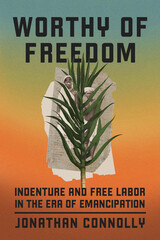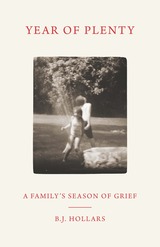38 start with A start with A
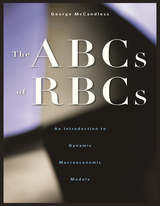
The ABCs of RBCs is the first book to provide a basic introduction to Real Business Cycle (RBC) and New-Keynesian models. These models argue that random shocks—new inventions, droughts, and wars, in the case of pure RBC models, and monetary and fiscal policy and international investor risk aversion, in more open interpretations—can trigger booms and recessions and can account for much of observed output volatility.
George McCandless works through a sequence of these Real Business Cycle and New-Keynesian dynamic stochastic general equilibrium models in fine detail, showing how to solve them, and how to add important extensions to the basic model, such as money, price and wage rigidities, financial markets, and an open economy. The impulse response functions of each new model show how the added feature changes the dynamics.
The ABCs of RBCs is designed to teach the economic practitioner or student how to build simple RBC models. Matlab code for solving many of the models is provided, and careful readers should be able to construct, solve, and use their own models.
In the tradition of the “freshwater” economic schools of Chicago and Minnesota, McCandless enhances the methods and sophistication of current macroeconomic modeling.
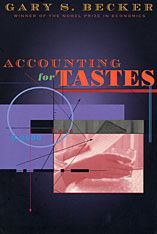
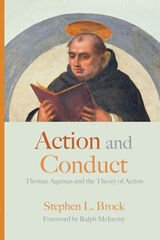
"A first-rate book...Brock's lucid and illuminating analysis offers much of value to both intellectual historians and theologians, as well as philosophers."—Theological Studies"Brock's treatment of Aquinas's account of action exhibits a rare combination of rigor and learning. It is, no doubt, the best we have."—The Thomist
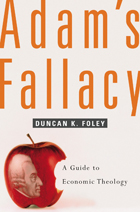
This book could be called “The Intelligent Person’s Guide to Economics.” Like Robert Heilbroner’s The Worldly Philosophers, it attempts to explain the core ideas of the great economists, beginning with Adam Smith and ending with Joseph Schumpeter. In between are chapters on Thomas Malthus, David Ricardo, Karl Marx, the marginalists, John Maynard Keynes, Friedrich Hayek, and Thorstein Veblen. The title expresses Duncan Foley’s belief that economics at its most abstract and interesting level is a speculative philosophical discourse, not a deductive or inductive science. Adam’s fallacy is the attempt to separate the economic sphere of life, in which the pursuit of self-interest is led by the invisible hand of the market to a socially beneficial outcome, from the rest of social life, in which the pursuit of self-interest is morally problematic and has to be weighed against other ends.
Smith and his successors argued that the market and the division of labor that is fostered by it result in tremendous gains in productivity, which lead to a higher standard of living. Yet the market does not address the problem of distribution—that is, how is the gain in wealth to be divided among the classes and members of society? Nor does it address such problems as the long-run well-being of the planet.
Adam’s Fallacy is beautifully written and contains interesting observations and insights on almost every page. It will engage the reader’s thoughts and feelings on the deepest level.
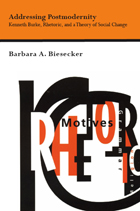
In Addressing Postmodernity, Barbara Biesecker examines the relationship between rhetoric and social change and the ways human beings transform social relations through the purposeful use of symbols. In discerning the conditions of possibility for social transformation and the role of human beings and rhetoric in it, Biesecker turns to the seminal work of Kenneth Burke.
Through a close reading of Burke's major works, A Grammar of Motives, A Rhetoric of Motives, and The Rhetoric of Religion: Studies in Logology, the author addresses the critical topic of the
fragmentation of the contemporary lifeworld revealing postmodernity will have a major impact on Burkeian scholarship and on the rhetorical critique of social relations in general.
Directly confronting the challenges posed by postmodernity to social theorists and critics alike and juxtaposing the work of Burke and Jurgen Habermas, Biesecker argues that a radicalized rereading of Burke's theory of the negative opens the way toward a resolutely rhetorical theory of social change and human agency.

Public management involves leading, coordinating, and stimulating public agencies and programs to deliver excellent performance. Research and practice of public management have developed rapidly in recent years, drawing on the fields of public policy, public administration, and business management. In carrying out their crucial roles in shaping what government delivers, public managers today must confront daunting challenges imposed by shifting policy agendas, constrained financial resources combined with with constant public demands for a rich array of public services, and increasing interdependence among public, private, and third-sector institutions and actors. At the same time, these challenges and other developments offer exciting opportunities for improving knowledge and practice in public management, for the benefit of everyone. In this volume, leading scholars contribute advances in the theory, methods, and practice in this burgeoning field.
The selections address four key topics:-The nature and impact of public management;-Creative new methods for public management research;-Reform, reinvention, innovation, and change;-New models and frameworks for understanding and improving public management

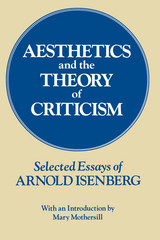
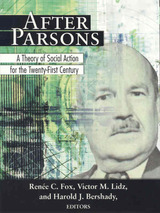
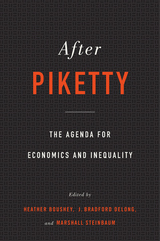
A Foreign Affairs Best Book of the Year
“An intellectual excursion of a kind rarely offered by modern economics.”
—Foreign Affairs
Thomas Piketty’s Capital in the Twenty-First Century is the most widely discussed work of economics in recent years. But are its analyses of inequality and economic growth on target? Where should researchers go from there in exploring the ideas Piketty pushed to the forefront of global conversation? A cast of leading economists and other social scientists—including Emmanuel Saez, Branko Milanovic, Laura Tyson, and Michael Spence—tackle these questions in dialogue with Piketty.
“A fantastic introduction to Piketty’s main argument in Capital, and to some of the main criticisms, including doubt that his key equation…showing that returns on capital grow faster than the economy—will hold true in the long run.”
—Nature
“Piketty’s work…laid bare just how ill-equipped our existing frameworks are for understanding, predicting, and changing inequality. This extraordinary collection shows that our most nimble social scientists are responding to the challenge.”
—Justin Wolfers, University of Michigan
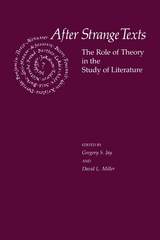
In this collection of essays by seven outstanding American scholars, interests as diverse as feminism, Marxism, deconstruction, and cultural poetics are brought together around a central question: how does the choice of a particular theory alter the practice of reading and do altered practices of reading in turn call forth more theory?
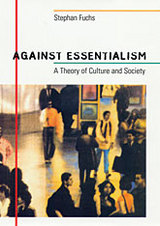
Against Essentialism presents a sociological theory of culture. This interdisciplinary and foundational work deals with basic issues common to current debates in social theory, including society, culture, meaning, truth, and communication. Stephan Fuchs argues that many mysteries about these concepts lose their mysteriousness when dynamic variations are introduced.
Fuchs proposes a theory of culture and society that merges two core traditions--American network theory and European (Luhmannian) systems theory. His book distinguishes four major types of social "observers"--encounters, groups, organizations, and networks. Society takes place in these four modes of association. Each generates levels of observation linked with each other into a "culture"--the unity of these observations.
Against Essentialism presents a groundbreaking new approach to the construction of society, culture, and personhood. The book invites both social scientists and philosophers to see what happens when essentialism is abandoned.


Given the undeniable global importance of the Japanese and U.S. economies, these innovative essays shed welcome new light on the complex correlations between aging and economic behavior. This insightful work not only deepens our understanding of the Japanese and American economic landscapes but, through careful examination of the comparative social and economic data, clarifies the complex relation between aging societies, public policies, and economic outcomes.

The noted economist Yair Mundlak presents here a theory of the growth of the agricultural sector within the context of a growing economy. He explores the various aspects of the dynamics of agriculture and their relationship to the dynamics of the economy at large, offering a unique blend of theory, methodology, and empirical analysis.
The rate of agricultural growth has varied across countries and over time, even though the main innovations in agricultural technology have been made available to all countries. Consequently, the difference in performance is due to the use made of the available technology. Mundlak treats the implementation of technology as an economic decision similar to decisions about resource supply and allocation. The development of agriculture, like that of other sectors, is determined to a large degree by the economic environment, especially public policies. This framework permits the author to evaluate the effects of policies on growth by examining their effects on sectoral incentives. Mundlak shows that neutral macroeconomic policies may have a stronger effect on sectoral growth than sector-specific policies.
The book contains problem sets, and will be a reference and text for graduate-level courses.
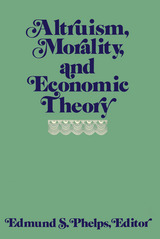
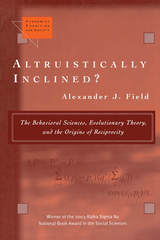
Altruistically Inclined? examines the implications of recent research in the natural sciences for two important social scientific approaches to individual behavior: the economic/rational choice approach and the sociological/anthropological. It considers jointly two controversial and related ideas: the operation of group selection within early human evolutionary processes and the likelihood of modularity—domain-specific adaptations in our cognitive mechanisms and behavioral predispositions.
Experimental research shows that people will often cooperate in one-shot prisoner's dilemma (PD) games and reject positive offers in ultimatum games, contradicting commonly accepted notions of rationality. Upon first appearance, predispositions to behave in this fashion could not have been favored by natural selection operating only at the level of the individual organism.
Emphasizing universal and variable features of human culture, developing research on how the brain functions, and refinements of thinking about levels of selection in evolutionary processes, Alexander J. Field argues that humans are born with the rudiments of a PD solution module—and differentially prepared to learn norms supportive of it. His emphasis on failure to harm, as opposed to the provision of affirmative assistance, as the empirically dominant form of altruistic behavior is also novel.
The point of departure and principal point of reference is economics. But Altruistically Inclined? will interest a broad range of scholars in the social and behavioral sciences, natural scientists concerned with the implications of research and debates within their fields for the conduct of work elsewhere, and educated lay readers curious about essential features of human nature.
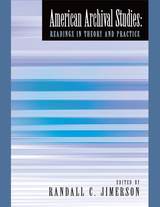

The theoretical constants Narmour uses are context-free and, therefore, applicable to all styles of melody. He places considerable emphasis on the listener's cognitive performance (that is, fundamental melodic perception as opposed to acquired musical competence). He concentrates almost exclusively on low-level, note-to-note relations. The result is a highly generalized theory useful in researching all manner of psychological and music-theoretic problems concerned with the analysis and cognition of melody.
"In this innovative, landmark book, a distinguished music theorist draws extensively from a variety of disciplines, in particular from cognitive psychology and music theory, to develop an elegant and persuasive framework for the understanding of melody. This book should be read by all scholars with a serious interest in music."—Diana Deutsch, Editor, Music Perception
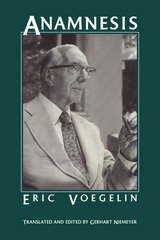
Anamnesis pulls together those materials that focus most sharply upon the development of Eric Voegelin's philosophy of consciousness. Voegelin is considered one of the most influential and profound philosophers of our time and has had an enormous impact on contemporary intellectual life.

Anarchist politics are at the heart of today’s most vibrant and radical social movements. From squatted social centres and community gardens to acts of sabotage and raucous summit blockades, anarchist groups and networks are spreading an ethos of direct action, non-hierarchical organizing and self-liberation that has redefined revolutionary struggle for the 21st century.
Anarchy Alive! is a fascinating, in-depth look at the practice and theory of contemporary anarchism. Uri Gordon draws on his activist experience and on interviews, discussions and a vast selection of recent literature to explore the activities, cultures and agendas shaping today’s explosive anti-authoritarian revival. Anarchy Alive! also addresses some of the most tense debates in the contemporary movement, using a theory based on practice to provocatively reshape anarchist discussions of leadership, violence, technology and nationalism.
This is the ideal book for anyone looking for a fresh, informed and critical engagement with anarchism, as a mature and dynamic political force in the age of globalisation.
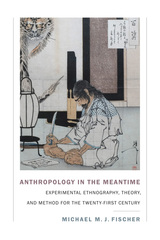

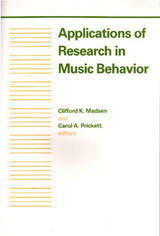
Applications of Research in Music Behavior stresses the practical applications and implications of investigating music behavior in a systematic, objective manner. Specifically, the book focuses on factors influencing the teaching of children; efficient methods for instructing future teachers; elements affecting musical perception, likes, and dislikes; and innovative efforts to investigate new areas of study. Recent studies by twenty-six nationally known educators that use objective strategies associated with experimental and behavioral research are presented to illustrate how people learn about music and how people are taught to make music.
The research studies are introduced by an article emphasizing the usefulness of research literature in devising a teaching strategy and are grouped into four sections: Teaching Music to Children, Teaching Future Teachers, Preference and Perception, and New Horizons. The concluding article is an allegorical proposal for balance and perspective in the consideration of music education.
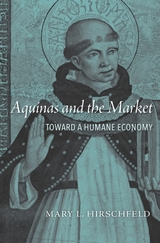
Economists and theologians usually inhabit different intellectual worlds. Economists investigate the workings of markets and tend to set ethical questions aside. Theologians, anxious to take up concerns raised by market outcomes, often dismiss economics and lose insights into the influence of market incentives on individual behavior. Mary L. Hirschfeld, who was a professor of economics for fifteen years before training as a theologian, seeks to bridge these two fields in this innovative work about economics and the thought of St. Thomas Aquinas.
According to Hirschfeld, an economics rooted in Thomistic thought integrates many of the insights of economists with a larger view of the good life, and gives us critical purchase on the ethical shortcomings of modern capitalism. In a Thomistic approach, she writes, ethics and economics cannot be reconciled if we begin with narrow questions about fair wages or the acceptability of usury. Rather, we must begin with an understanding of how economic life serves human happiness. The key point is that material wealth is an instrumental good, valuable only to the extent that it allows people to flourish. Hirschfeld uses that insight to develop an account of a genuinely humane economy in which pragmatic and material concerns matter but the pursuit of wealth for its own sake is not the ultimate goal.
The Thomistic economics that Hirschfeld outlines is thus capable of dealing with our culture as it is, while still offering direction about how we might make the economy better serve the human good.
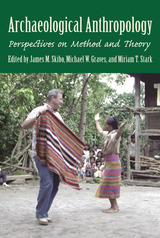
In this collection of twelve new chapters, four generations of Longacre protégés show how they are building upon and developing but also modifying the theoretical paradigm that remains at the core of Americanist archaeology. The contributions focus on six themes prominent in Longacre’s career: the intellectual history of the field in the late twentieth century, archaeological methodology, analogical inference, ethnoarchaeology, cultural evolution, and reconstructing ancient society.
More than a comprehensive overview of the ideas developed by one of the most influential scholars in the field, however, Archaeological Anthropology makes stimulating contributions to contemporary research. The contributors do not unequivocally endorse Longacre’s ideas; they challenge them and expand beyond them, making this volume a fitting tribute to a man whose robust research and teaching career continues to resonate.
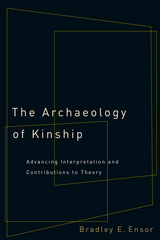
The Archaeology of Kinship supports Ensor’s objectives: to demonstrate the relevance of kinship to major archaeological questions, to describe archaeological methods for kinship analysis independent of ethnological interpretation, to illustrate the use of those techniques with a case study, and to provide specific examples of how diachronic analyses address broader theory. As Ensor shows, archaeological diachronic analyses of kinship are independently possible, necessary, and capable of providing new insights into past cultures and broader anthropological theory. Although it is an old subject in anthropology, The Archaeology of Kinship can offer new and exciting frontiers for inquiry.
Kinship research in general—and prehistoric kinship in particular—is rapidly reemerging as a topical subject in anthropology. This book is a timely archaeological contribution to that growing literature otherwise dominated by ethnology.
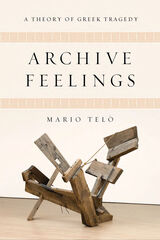
With bold readings of thirteen plays by Aeschylus, Sophocles, and Euripides, including the Oedipus cycle, the Oresteia, Medea, and Bacchae; an eclectic synthesis of Freud, Lacan, Derrida, Žižek, Deleuze, and other critical theorists; and an engagement with art, architecture, and film, Mario Telò’s Archive Feelings: A Theory of Greek Tragedy locates Greek tragedy’s aesthetic allure beyond catharsis in a vertiginous sense of giddy suspension, in a spiral of life and death that resists equilibrium, stabilization, and all forms of normativity. In so doing, Telò forges a new model of tragic aesthetics.
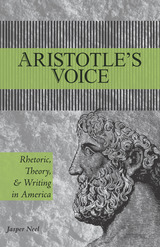
In this book, Jasper Neel’s sure-to-be-controversial resituating of Aristotle centers around three questions that have been constants in his twenty-two years of teaching experience: What does itmean to teach writing? What should one know before teaching writing? And, if there is such a thing as "research in the teaching of writing," what is it?
Believing that all composition teachers are situated politically and socially, both as part of the institution in which they teach and as beings with lived histories, Neel examines his own life and the life of composition studies as a discipline in the context of Aristotle. Neel first situates the Rhetoric as a political document; he then situates the Rhetoric in the Aristotelian system and describes how professional discourse came to know itself through Aristotle’s way of studying the world; finally, he examines the operation of the Rhetoric inside itself before arguing the need to turn to Aristotle’s notion of sophistry as a way of negating his system.
By pointing out the connections among Aristotelian rhetoric, the contemporary university, and the contemporary writing teacher, Neel shows that Aristotle’s frightening social theories are as alive today as are Aristotelian notions of discourse.
Neel explains that by their very nature teachers must speak with a professional voice. It is through showing how to "hear" one’s professional voice that Neel explores the notion of professional discourse that originates with Aristotle. In maintaining that one must pay a high price in order to speak through Aristotle’s theory or to assume the role of "professional," he argues that no neutral ground exists either for pedagogy or for the analysis of pedagogy. Neel concludes this discussion by proposing that Aristotelian sophistry is both an antidote to Aristotelian racism, sexism, and bigotry and a way of allowing Aristotelian categories of discourse to remain useful.
Finally, as an Aristotelian, a teacher, and a writer, Neel responds both to Aristotle and to professionalism by rethinking the influence of the past and reviving the voice of Aristotelian sophistry.
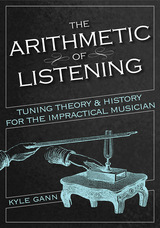
A classroom essential and an invaluable reference, The Arithmetic of Listening offers beginners the grounding in music theory necessary to find their own way into microtonality and the places it may take them. Moving from ancient Greece to the present, Kyle Gann delves into the infinite tunings available to any musician who feels straitjacketed by obedience to standardized Western European tuning. He introduces the concept of the harmonic series and demonstrates its relationship to equal-tempered and well-tempered tuning. He also explores recent experimental tuning models that exploit smaller intervals between pitches to create new sounds and harmonies.
Systematic and accessible, The Arithmetic of Listening provides a much-needed primer for the wide range of tuning systems that have informed Western music.
Audio examples demonstrating the musical ideas in The Arithmetic of Listening can be found at: https://www.kylegann.com/Arithmetic.html
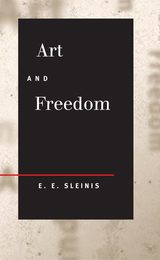
What does a life with art offer that a life without art does not? Art and Freedom asserts that the fundamental point of the enterprise of art is the creation and delivery of values that are not singularly available in the nonart world.
E. E. Sleinis discusses visual art, literature, music, theater, and other art forms, arguing that as art both liberates and provides new points of focus and awareness, the art enterprise depends on a positive freeing from the nonart world, rather than on mere addition to it.
Art and Freedom introduces a novel classificatory system for representation, expression, and formalist theories of art. Sleinis argues that a characteristic defect of contemporary theories of art is their neglect of the issue of value. Challenging these reductive, formalist notions of art, he emphasizes the potential, and the need, for art to evolve and make progress in ways comparable to the sciences, albeit on a very different model.
A smart blend of incisive commentary and illuminating philosophy, Art and Freedom provides a useful context for transforming a sometimes baffling medium into a means of fostering personal growth and creating and sharing values.
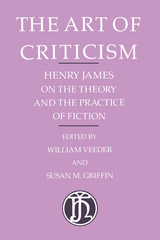
The editors have provided what James himself emphasized in his literary criticism—the text's context. Each selection is framed by an editorial commentary and notes which give its biographical, bibliographical, and critical background and cite other references in James' work to the topic discussed. This framework, along with the editors' introduction, gives the reader a sense of the place of these pieces in the history of criticism.
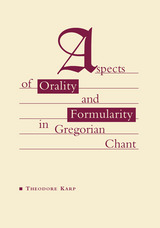
The essays are loosely connected through their bearing on one or more of three themes: the role of orality in the transmission of chant circa 700-1400; varying degrees of stability or instability in the transmission of chant; and the role of the formula in the construction of chant. Throughout, Karp uses 202 musical examples.
The first essay evaluates forms of evidence that may shed light on the nature of orality that led to the surviving notational records of Gregorian chant and assembles evidence that supports the conclusion that fidelity of transmission represented an important goal of the Franks. The second essay treats formulas that cross the boundaries of individual liturgical genres and modes. The third essay defines the varying kinds of musical formulas in chant and proposes a chronological ordering of the genre of second-mode tracts.
The fourth essay treats the transmission of a stable melody and explores the ways in which one basic melody may be adapted to texts of widely differing structures and lengths. The fifth essay deals with a group of unstable melodies that furnished difficulties in modal classification. The sixth essay explores the problems faced by scribes seeking to represent in diastematic notation melodies employing tones not normally admitted into the medieval gamut. The seventh essay takes up the role of the formula in introits, a neumatic genre intended forchoral performance.
The two final essays look at second-mode tracts and at the interrelationship between Roman and Gregorian chant.
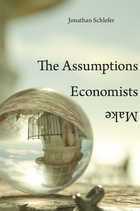
Economists make confident assertions in op-ed columns and on cable news—so why are their explanations often at odds with equally confident assertions from other economists? And why are all economic predictions so rarely borne out? Harnessing his frustration with these contradictions, Jonathan Schlefer set out to investigate how economists arrive at their opinions.
“A lucid, plain-spoken account of the major economic models, which [Schlefer] introduces in chronological order, creating a kind of intellectual history of macroeconomics. He explains what the models assume, what they actually demonstrate—and where they fall short.”
—Binyamin Applebaum, New York Times blog
“Fascinating...[Schlefer’s] book is a tough critique of economics, but a deeply informed and sympathetic one.”
—Justin Fox, Harvard Business Review blog
“This book is an impressive and informative analysis of the economics literature—and it presents some useful insights about how a more eclectic, catholic approach might allow economics to progress more convincingly into the future.”
—Michelle Baddeley, Times Higher Education
“The Assumptions Economists make [is] a knowledgeable...broadside against neoclassical economics...Schlefer’s gripes concern model-building run amok...His criticisms of these models are original and sophisticated.”
—Christopher Caldwell, Literary Review
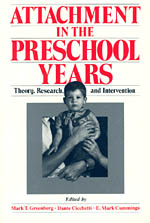
"There is a wealth of information and thought in this book; it does not have a weak or uninteresting chapter, starting with the Preface by Emde, and as a whole, it forms a sort of seminar."—John E. Bates, Contemporary Psychology

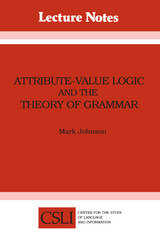
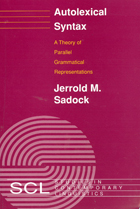
Sadock's principal innovation is the postulation of a uniform set of interface conditions that require the several orthogonal representations of a single natural language expression to match up in certain ways. Through a detailed application of his theory to the twin morphosyntactic problems of cliticization and incorporation, Sadock shows that very straightforward accounts are made possible by the nonderivational model. He demonstrates the empirical success of these accounts by examining more than two dozen morphosyntactic problems in almost as many languages.
Autolexical Syntax will be of interest to those in the fields of theoretical grammar, particularly concerned with the problems of morphology and syntax, as well as philosophers of language, logicians, lexicographers, psychologists of language, and computer scientists.
READERS
Browse our collection.
PUBLISHERS
See BiblioVault's publisher services.
STUDENT SERVICES
Files for college accessibility offices.
UChicago Accessibility Resources
home | accessibility | search | about | contact us
BiblioVault ® 2001 - 2024
The University of Chicago Press



